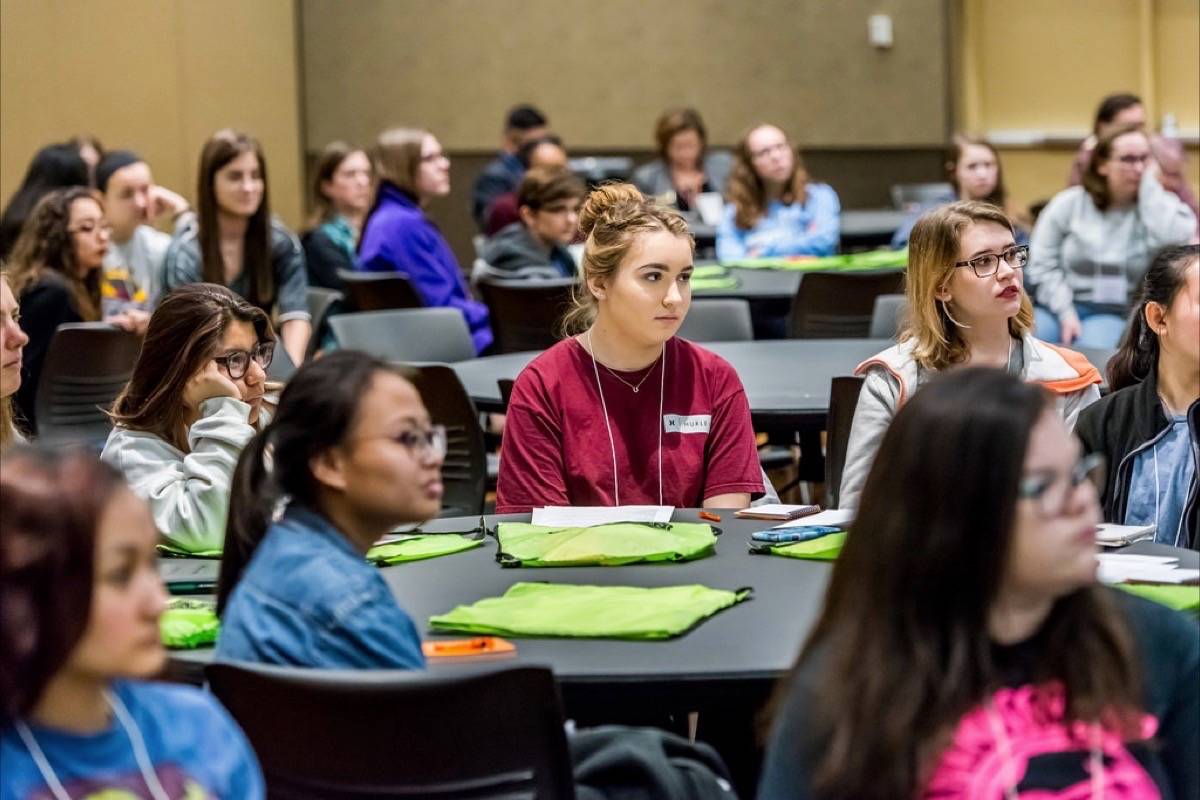A new pilot project at a high school in Ontario will see Grade 9 students negotiating their end-of-semester grades with their teacher, an idea some experts say will help keep the focus on learning.
The students, enrolled in four courses at Mayfield Secondary School in Caledon, Ont., will receive feedback from their teacher throughout the semester, but not grades. At the end of the term, they’ll sit down with the teacher and evaluate their course work and will, ideally, come to an agreement on an appropriate final grade.
“It’ll be a negotiation process where they have a conversation about the learning, and the student can articulate exactly what they’ve learned and how they’ve grown as a learner,” said school principal James Kardash. “And when we can get to that, we’re starting to make inroads on what education should really be about.”
Experts have had mixed reactions to the idea.
Colleen Willard-Holt, dean of the faculty of education at Wilfrid Laurier University, thinks grades carry a lot of weight, and sometimes they’re overrated.
“It can work quite well for students to engage in a dialogue with their teacher and talk about what they have learned and what kinds of things they can show that demonstrate their learning,” she said in an interview.
“That dialogue then, is another chance for them to engage in the learning process itself, because they’re learning to advocate for themselves, they’re learning to articulate the learning that has taken place within themselves.”
Carol Rolheiser, director at the Centre for Teaching Support and Innovation at the University of Toronto, says that when students receive consistent feedback from teachers and peers throughout the school year, they tend to perform better.
“Saying, ‘Based on that feedback, what do I need to do differently in the future? What are the areas of strength? What are the areas I need to improve?’, that’s the cycle we want to get at,” Rolheiser said.
But, she said, ultimately she feels that assigning a grade should be the teacher’s responsibility.
Some of the teachers have been skeptical too, Kardash noted, adding that they’ve slowly been coming around to the idea.
“I think a few of them thought that maybe I hit my head playing football a few too many times,” said Kardash, a former Toronto Argonauts player. But by the start of this school year, after a few professional development sessions, he estimated that about a fifth of the school’s teachers are in favour of the change.
Bringing parents onboard, however, was a different story.
“I was told that there were Facebook groups out there that were critical of me, and saying that they weren’t going to let their kids go to Mayfield and whatnot, and that’s normal. You’ve got to expect that to happen when there’s no information,” he said.
Kardash said that once he informed parents about the program’s merits, they started wondering why their kids wouldn’t be able to continue with the program throughout their entire high school careers.
“I had some parents in the school today because we had a Grade 9 bring-your-parents-to-school day, and that was one of the questions: If I have a son and he thinks he deserves a 95, and the teacher says he only deserves a 72?” Kardash said.
If that happens, the teacher will have the final say, but there will be an appeal process if the student really thinks the teacher was wrong, he said.
Willard-Holt said she doesn’t think many of those discrepancies will happen.
“I’ve actually had some experience in having students talk about their grades with me, and for the most part, I find that they’re pretty tough on themselves,” she said.
Nicole Thompson, The Canadian Press



